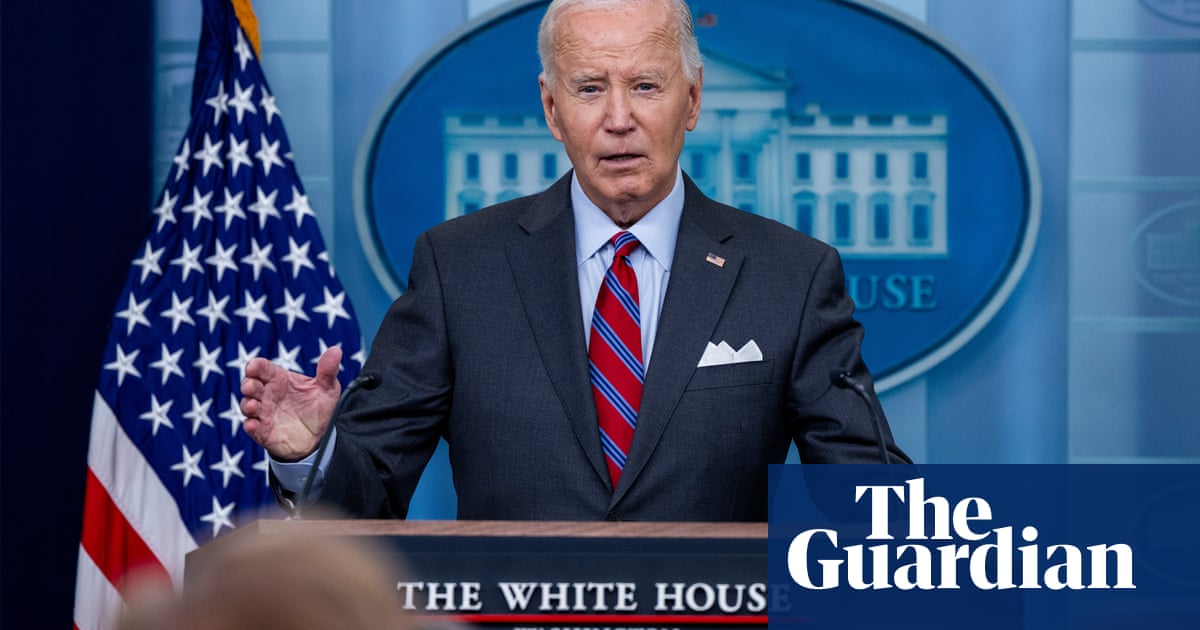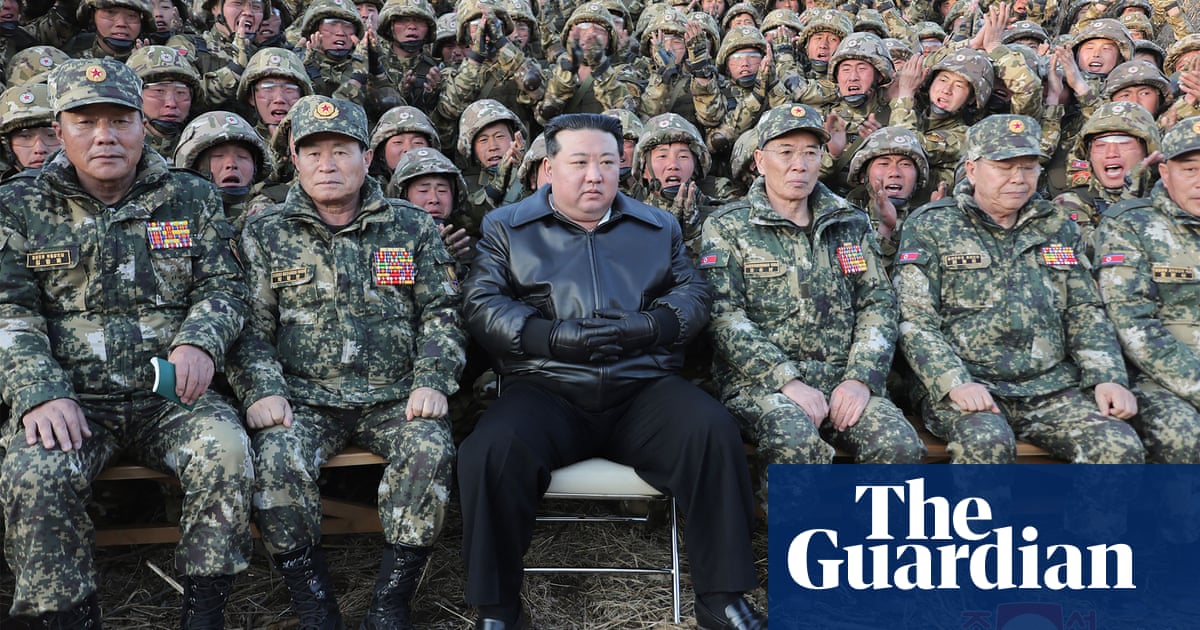Joe Biden had terse words at the White House on Friday for Benjamin Netanyahu, saying he didn’t know whether the Israeli prime minister was holding up a peace deal in the Middle East – where Israel is at war with Hamas in Gaza and on a military offensive against Hezbollah in Lebanon – in order to influence the outcome of the 2024 US presidential election.
“No administration has helped Israel more than I have. None. None, none. And I think Bibi should remember that,” Biden said, using Netanyahu’s nickname. He added: “And whether he’s trying to influence the election, I don’t know – but I’m not counting on that.”
The US president made a surprise and rare appearance in the west wing briefing room and answered reporters’ questions there for the first time in his presidency.
He was responding to comments made by one of his allies, Chris Murphy, a Democratic US senator of Connecticut, who said on CNN this week that he was concerned Netanyahu had little interest in a peace deal in part because of American politics.
The two leaders have long managed a complicated relationship, but they are running out of space to maneuver as their views on the Israel-Gaza war diverge and their political futures hang in the balance.
Biden has pushed for months for a ceasefire agreement in Gaza – and the president and his aides boosted the idea repeatedly that they were close to success – but a ceasefire has not materialized. Antony Blinken, the secretary of state, has engaged in shuttle diplomacy to Israel and to peace talks via intermediaries, but to no avail and, in some cases, Netanyahu has publicly resisted the prospect while US and Israeli officials continue to talk in private about eking out a deal.
Meanwhile, Israel has recently pressed forward on two fronts, pursuing a ground incursion into Lebanon against Hezbollah and conducting strikes in Gaza. And it has vowed to retaliate for Iran’s ballistic missile attack this week, as the region braced for further escalation.
Biden said there had been no decision yet on what type of response there would be toward Iran, though there has been talk about Israel striking Iran’s oilfields: “I think if I were in their shoes, I’d be thinking about other alternatives than striking oilfields.”
Biden pushed back against the idea that he was seeking a meeting with Netanyahu to discuss the response to Iran. He wasn’t, he said.
“I’m assuming when they make a decision on how they’re going to respond, we will then have a discussion,” he said.
Netanyahu has grown increasingly resistant to Biden’s efforts. Biden has in turn publicly held up delivery of heavy bombs to Israel and increasingly voiced concerns over an all-out war in the Middle East and yet has never acquiesced to political calls at home or internationally for a halt on US arms sales to Israel.
“I don’t believe there’s going to be an all-out war,” Biden said on Thursday evening. “I think we can avoid it. But there’s a lot to do yet.”
Biden has remained consistent in his support for Israel in the aftermath of the 7 October Hamas attacks in Israel. Since then, with few exceptions, Biden has supported ongoing and enhanced US arms transfers to Israel while merely cautioning the Israelis to be careful to avoid civilian casualties.
Biden has also ordered the US military to step up its profile in the region to protect Israel from attacks by Hamas, Hezbollah, the Iranian-backed Houthi rebels in Yemen and Iran itself. In April, and again earlier this week, the US was a leading player in shooting down missiles fired by Iran into Israel.
On Thursday, Biden said the US was “discussing” with Israel the possibility of Israeli strikes on Iran’s oil infrastructure.
His off-the-cuff remark, which immediately sent oil prices soaring, did not make clear whether his administration was holding internal discussions or talking directly to Israel, nor did he clarify what his attitude was to such an attack.
Asked to clarify those comments, Biden told reporters on Friday: “Look, the Israelis have not concluded what they’re going to do in terms of a strike. That’s under discussion.”
Kamala Harris also has not taken a different stance on arms sales but has spoken more assertively for months to demand an immediate ceasefire in Gaza and has decried civilian killings in Israel’s war in the Palestinian territory.
The Associated Press contributed reporting



